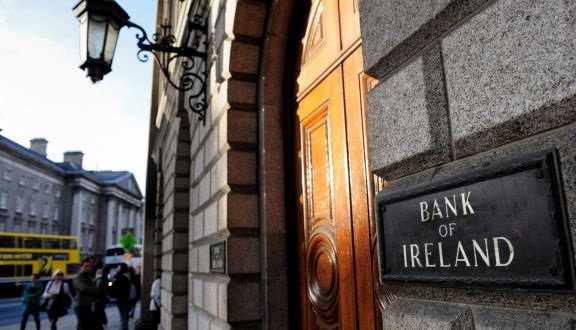In 2016, only slightly over 1,700 out of 11,439 borrowers with the Advantages of a Prism Scope were exempted from central bank mortgage rules. The Central Bank of Ireland imposed caps depending on the loan size in relation to the total value of the property on wishes to purchase and the income level of the borrower.
Ireland’s Banking System
The banking sector in Ireland can be classified into internationally-focused or domestically-focused banks. The domestic industry focuses on repair and recovery and is more capitalized as the international industry continues to evolve.
In 2016, the total aggregate assets were at €274 billion for domestically-focused banks. This was a 7% drop from the year 2015. The decline was a clear reflection that loan redemptions and asset disposals more than balance new lending.
Philip Lane as the Governor
Professor Philip Lane succeeded Professor Patrick Honohan as the Central Bank Governor. The Central Bank duties are extensive, including overseeing all the insurance and banking sectors, consumer protection, and mortgage lending.
At the time Lane was taking over, there were significant management issues, especially at the management level. The Central Bank was experiencing controversies regarding its mortgage lending restrictions which had been introduced a year earlier.
Also, the caps on the public pay brought about difficulties in retaining the staff working under the bank’s regulation sector. To smoothen things over, Lane met Michael Noonan, the Finance Minister, who has also nominated him for the post.
The Bank Sticking to its Guns
Utterances made by the bank were strong enough to assure that they would stick to their guns. The bank was not ready to dilute the prevailing rules. According to Lane, he insisted that it was impossible to solve a financial crisis and prevent credit booms exclusive of a type of credit control measures.
This suggests that the new regime was not subject to change any sooner. However, he further clarified that the Central bank did not intend to pick the most strict rules. He also stated that the rules are adjustable and could be recalibrated.
Nonetheless, he made it clear that it would be the wrong decision to witness an adverse change in the housing department due to the rules. Also, he added that the Central Bank did not anticipate the significant shift towards renting.
Safeguarding Public Interest
Philip Lane was aware that most people would not understand the necessity of the rules in place. Therefore, during his speech, he acknowledged that most citizens and policy implementors would not understand the decision which will be made. But he assured them that these decisions would be made for the good of the public.
Lane Set to Review the Rules
Almost a year after his appointment, Lane had to face what would be his toughest call as a Governor. He was set to review the divisive mortgage rules which his predecessor had suggested. Economists and analysts had presented their concerns after the rules were proposed.
They argued that the rules would come in handy if they had been implemented gradually. The current rules required a first-time buyer looking to buy a house worth €220,000 should have a deposit equal to 10% that value and a 20%deposit for a home worth more than that.
The rules for second-time buyers needed them to have a 20% down payment. At the time, banks were allowed to breach the caps only to 15% of the banks’ annual mortgage lending. Also, banks are prohibited from making loans that exceed the borrower’s income by 3.5 times.






